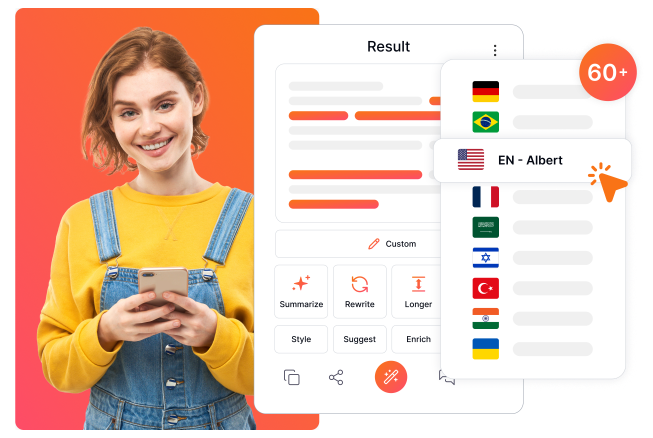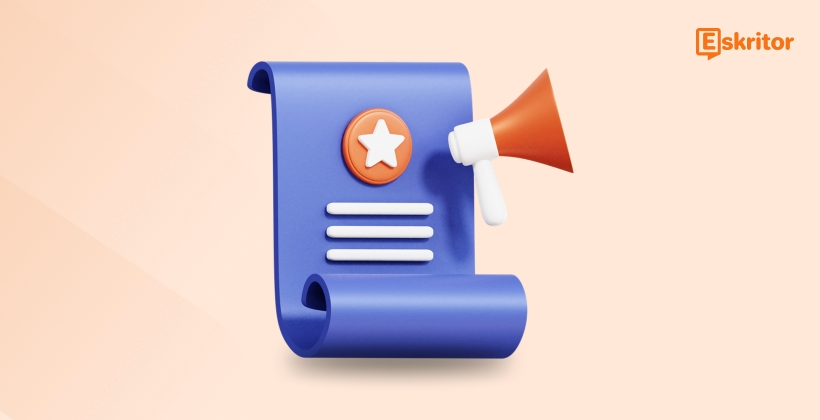The Role of AI in Modern Editing Practices
The Role of AI in Modern Editing Practices
Blog Article
Why AI Editing is Revolutionizing Proofreading
Artificial intelligence (AI) publishing engineering has changed fast in the last decade, reshaping just how we build and connect to prepared content. From syntax correction instruments to AI-generated books, the options look limitless. But where just is that engineering going? Let's explore the inventions, issues, and possible potential of AI Editing.

How AI Writing Engineering Performs Today
At their core, AI writing engineering depends on Natural Language Control (NLP) and equipment learning. These systems enable models to understand, make, and increase human language. Methods accessible nowadays excel at tasks like:
1. Content Development
AI has achieved a point wherever it may make complete blog articles, social networking captions, and also information articles. Some types are designed for mimicking human writing variations so efficiently that unique between AI- and human-written material has become increasingly difficult.
2. Grammar and Design Recommendation
AI-powered publishing personnel don't only check always for grammar and spelling mistakes; additionally they provide ideas to enhance tone, clarity, and sentence structure, making complex publishing available to a wide audience.
3. Feeling Examination
AI may examine the emotional tone of an item, permitting companies to assess how their communications will resonate with readers. This is especially helpful in marketing and client interaction.
The Recent Developments in AI Publishing Engineering
Many styles are surrounding the next phase of AI-powered writing methods:
• Personalization
AI publishing engineering is significantly capable of tailoring content to specific preferences. Designs may adjust to a user's publishing fashion, ensuring the result thinks authentic.
• Multilingual Functions
Many AI tools are expanding their international achieve by offering improved interpretation characteristics and help for multiple languages.
• Increased Research Functions
AI tools now possess the capacity to analyze substantial amounts of knowledge and offer fact-checked, well-researched publishing in seconds, simplifying the method for specialists in industries like law, fund, and journalism.
What the Potential Supports for AI Publishing Engineering
1. Increased Imagination
While current AI is good at generating material, its imagination continues to be restricted to designs within its education data. Future AI isn't just expected to aid but to generate unique, insightful performs that concern individual imagination.
2. Seamless Relationship
Imagine an AI that operates along with you in real-time, performing your phrases, performing stay edits, and actually brainstorming ideas. AI writing methods may soon become co-authors, enabling creativity to movement uninterrupted.
3. Moral and Available Design
With growing issue about plagiarism, misinformation, and error, developers will work toward more transparent AI training operations and ethical implementation. Future instruments will more than likely offer more comprehensive citations and measures to ensure accountability.
Problems and Factors
The evolution of AI publishing technology is not without hurdles, including:
• Ethical Issues

Who possesses material developed by AI? Just how can we assure AI-generated material is not spreading misinformation? These debates remain unresolved.
• Human-AI Harmony
Can AI complement individual imagination or completely change specific roles? Several writers and artists bother about their relevance in a AI-driven world.
• Supply Split
Not absolutely all companies or regions have equal use of cutting-edge AI instruments, increasing issues about the influence of this engineering on global inequality.
Adjusting the Way We Write
AI publishing engineering continues to be in their infancy in comparison to its potential. Whether you're a student making documents, a material marketer targeting particular readers, or even a novelist seeking motivation, AI instruments can continue steadily to revolutionize the writing process. The following decade promises breakthroughs that mix human ingenuity with unit intelligence, making a future wherever writing is more effective, available, and impactful than actually before.
Report this page